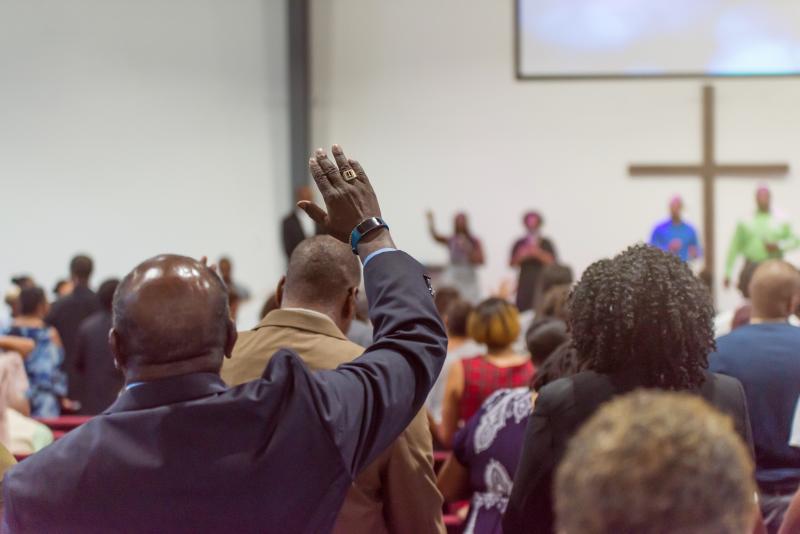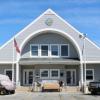Separate Chancery Court lawsuits filed Dec. 1 seek to limit Gov. John Carney’s emergency order powers, specifically those that prohibited church services and sacraments during the COVID-19 pandemic.
Two Delaware pastors, the Rev. Alan Hines of Townsend Free Will Baptist Church and the Rev. David Landow of Emmanuel Orthodox Presbyterian Church, seek a judgment that will prevent Carney or any other governor from shutting down worship under any conditions. Carney enacted his emergency order in March 2020 at the beginning of the COVID-19 pandemic, and he renewed the order once a month for 16 months, limiting or flat-out closing houses of worship, businesses and other places where people gather. Once the original emergency order ended, Carney enacted a public health emergency order, which he has renewed every month since July.
Both lawsuits state Carney gave preferential treatment to some businesses that were allowed to remain open, and that he placed unrealistic requirements on churches, such as not allowing the congregation to sing and requiring a pastor wear a mask at the pulpit unless he preached while standing with his back to the audience. When churches were allowed to reopen, strict regulations limited them to 10 members attending, with potential penalties for violating the governor’s order.
The lawsuits contend Carney violated Delaware’s Constitution and the U.S. Constitution by preventing citizens from being able to worship at a church or other house of worship.
“At the start of the Revolutionary War, the Delaware Bill of Rights of September 1776 declared that the new Delaware government can never interfere with the right of conscience in the free exercise of religious worship. Eleven days later, the first Delaware Constitution ordered that government can never violate religious freedom for any pretense whatsoever. The restated Delaware Constitutions of 1792, 1831, and present day 1897, all say the same thing. Yet Gov. Carney illegally ignored this total freedom with his pandemic lockdowns of all our churches while allowing 236 categories of secular businesses to remain open,” states the lawsuit filed by Thomas S. Neuberger and Scott D. Cousins, who are representing Hines.
Businesses allowed to operate included liquor stores, big-box stores, grocery stores and law firms.
In the lawsuit filed by Thomas C. Crumplar and Martin D. Haverly, who are representing Landow, they contend the framers of Delaware’s Constitution “zealously protected religious assembly, worship and exercise – writing they could never be violated on any pretence whatsoever.”
Over the centuries, communities have been faced with bubonic plague, malaria and smallpox, but their right to practice religion has never been prevented, the lawsuit states.
Both lawsuits, each totaling more than 90 pages, state that Carney has violated the First and 14th Amendments of the U.S. Constitution with his emergency order, preventing citizens from exercising their right to worship.
Unlike Pennsylvania, where the state legislature limited a governor’s power to enact continuous states of emergency, Delaware’s Legislature has done nothing of the sort, the lawsuits state, leaving it up to the court to interpret the constitution and limit a governor’s power.
They seek a permanent injunction against Carney and his successors barring them from enacting any future emergency order that prohibits people from going to church. The lawsuit also asks a judge to rule that a governor’s emergency order cannot prohibit church attendees based on their age or underlying health conditions; dictate how a minister can preach from the pulpit; or prohibit singing or the sacraments.
This isn’t the first time the Carney administration has faced a lawsuit over religious rights. In May 2020, the Rev. Dr. Christopher Bullock filed a federal lawsuit in U.S. District Court, stating Carney violated the First and 14th Amendments of the U.S. Constitution and Delaware’s Constitution by placing restrictions on churches and pastors. The lawsuit stated the rules on gathering were not equally applied, noting Carney and then-presidential candidate Joe Biden were allowed to attend gatherings where they spoke face-to-face to attendees without wearing masks.
In November 2020, on the eve of Carney’s deposition for the federal lawsuit, and with a trial date already set, the lawsuit states, that case was settled.






















































